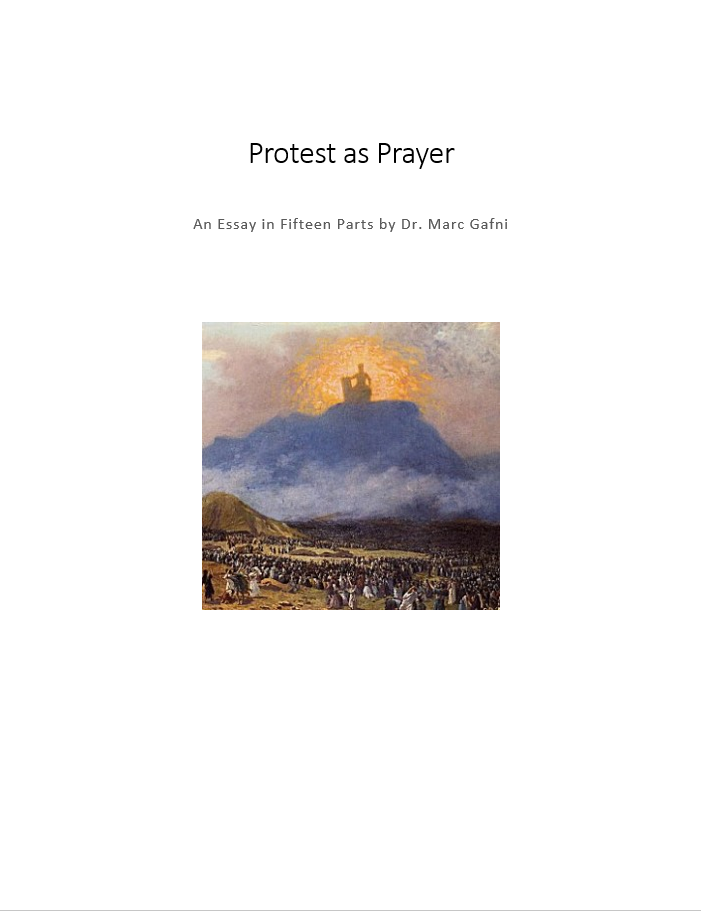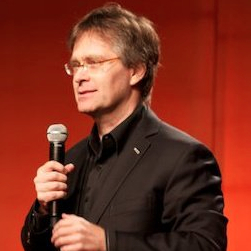About The Editors
This author has not yet filled in any details.So far The Editors has created 1000 blog entries.
Daily Wisdom: God seeing God
All lovers are revealers of the Divine in each other. God seeing God.
All love is the love of God.
~ RECANATI, a renaissance mystic
Love is to perceive another person unmasked, in the pristine beauty of their spiritual and emotional nakedness. Love is the pleasure produced by such a perception, when our loving awareness strips the beloved of all outer coatings until she stands fully revealed before the perceiving mind.
Love is a perception of the full divine wonder that is your beloved.
The Mystery of Love
Marc Gafni
Page 112
For more information on private study or to book a public teaching, contact Dr. Marc Gafni at support@ievolve.org
Daily Wisdom Post: The Music of the Temple
One of the places where we overcome alienation and step inside to an act of surrender is the sacred realm of music. Eros cuts through ego and touches essence. We feel alive and totally present in the fullness of our longing. Mastery in song and music takes place precisely at the point where radical discipline and control are transcended. At the intersection between control and surrender the singer or musician gives herself up, allowing herself to be played by the universe. It is of course not an accident that an essential component of the Temple service was music. The biblical myth text reads, “If you are searching for Shechina” then come to the Temple with its symphony of holy song. Through music from exotic instruments and songs that opened the heart, the people were aroused to the erotics of desire and personal surrender.
Mystery of Love
Marc Gafni
Page 165
For more information on private study or to book a public teaching, contact Dr. Marc Gafni at support@ievolve.org
Daily Wisdom Post: The Shechina is the feminine Divine
Her name means Indwelling Presence, “the one who dwells in you.” She is presence, poetry, passion. She is the sustaining God force that runs through and provides a womb for the world. She is the underlying erotic, sensual, and loving force that knows our name and nurtures all being.
Shechina captures an experience, a way of being in the world, for which we do not yet have an English word. For this is a way of being that we in the West are hard-pressed to articulate. It is the experience of waking up in the morning full of utter joy for the arrival of the day. It is weeping over the splendor of the sunset or the scent of the ocean or the fragility of a newborn. It is a way of living in love.
The Mystery of Love
Marc Gafni
Page 9
For more information on private study or to book a public teaching, contact Dr. Marc Gafni at support@ievolve.org
Daily Wisdom Post: Evolutionary Love
The Eros of evolution dances up the evolutionary spiral to higher and higher levels of complexity, and consciousness emerges from the evolutionary soup. It is a continual process of self-organization through self-transcendence, in which self transcends itself to recognize and join other in higher embrace. Love by any other name. The evolutionary ladder continues to spiral to ever-higher and deeper levels of complexity and consciousness. Each higher level is always defined by ever-higher levels of mutuality, recognition, union, and embrace between the evolving cells and organisms. Plants, amphibians, mammals, then higher mammals, until we get to the full bloom of human consciousness. This is the Great Story of One Love: Evolutionary Love.
Your Unique Self (in press)
For more information on private study or to book a public teaching, contact Dr. Marc Gafni at support@ievolve.org
Protest as Prayer (Part 4): Where — is God
The page you are trying to reach is part of our Great Library Stacks & Archives. If you already signed up for our FREE Great Library card, please log in to access this content.
If you are not yet a Library Card owner, you can sign up to get access.
Protest as Prayer (Part 3): Two 19th Century Russians, Nachman and Dostoyevsky
The page you are trying to reach is part of our Great Library Stacks & Archives. If you already signed up for our FREE Great Library card, please log in to access this content.
If you are not yet a Library Card owner, you can sign up to get access.
Protest as Prayer (Part 2): The Answer
The page you are trying to reach is part of our Great Library Stacks & Archives. If you already signed up for our FREE Great Library card, please log in to access this content.
If you are not yet a Library Card owner, you can sign up to get access.
Dr. Marc Gafni: Protest as Prayer (Part 1): A Response to Tragedy the World Over
God = The Infinity of Intimacy: From the Infinity of Power to the Infinity of Intimacy
Part 1:
By Marc Gafni
The mandate of biblical consciousness demands that the human being enter into partnership with God in the task of perfecting the world. The classical expression of this in the lineage of Kabbalah is the obligation of Tikkun. Tikkun means not merely to hear or to fix but to be co-creative evolutionary partners with the divine.
This evolutionary mandate to co-create and to heal the world with and as divinity emerges, paradoxically, not out of answers but out of questions. The fact that the human being can challenge and that God accepts the human challenge implies a covenantal partnership between the human being and God. Both the human being and God share an understanding of the good, and thus God can turn to the human being and say: “I invite you, nay, I demand that you be my partner, my co-creator in the perfection of the world. I began the process of creation; I established the moral fabric of the world. It is up to you to take that cloth and to weave it fully. It is up to you to complete the tapestry, it is up to you to risk to grow and to create a world in which good, love, justice and human dignity flourish and are affirmed.’ A human being who cannot be trusted enough to challenge evil can also not be a partner in fostering the good.
It is true that God very often seems silent in response to our challenge. Yet Jewish consciousness, expressed through biblical text and tradition, affirms that God accepts the validity of the question. In doing so God affirms our role as God’s partner in history. If I am able to recognize evil for what it is, then I am ipso facto obligated in tikkun olam – the obligation to act for and with God in the healing of the world. Man is the language of God. We are God’s adjectives, God’s adverbs, God’s nouns and sometimes even God’s dangling modifiers. We are God’s vocabulary in the world. When I love, when I am able to be truly vulnerable and intimate with another human being, when I am able to share the pain of another and to rejoice in their deep joy, I am acting for God. I become God’s chariot in the world.
More than this: if I can wrestle with God, if I can express my uncertainty with God in the intimacy of challenging relationship, then paradoxically, I convert my doubt into the core certainty of divine relationship.
Note: This post is part of a 15-part paper.
Read More Parts Here:
Daily Wisdom Post: Teshuva and the Spiritual Time Machines, Part 4
In our previous 3 posts we introduced a provocative Hebrew wisdom masters koan, “Great is teshuva, for in it intentional sins become great merits.”
Here is the third and final interpretation to help animate this koan in our lives:
The third understanding of the power of teshuva: the spiritual time machine. Teshuva literally means “to turn or return.” To return to where?
It could man to return to the scene of the crime and not do it again. If adultery with your best friend’s wife is the sin, then it means that you have the same opportunity–sexy and willing woman, available apartment, alibii, and the same level of attraction–but this time you set a sacred boundary.
Or it could mean something else entirely. It could mean that you return not only to the same situation and even the same place, but also that time itself warps and you return to the same moment. When the desire to make amends is driven by love, be it love of God, self, or other, then time warps and makes herself available. The mystery of love modeled in the sexual is that time is not absolute. It bends to the will of love and eros.
The Mystery of Love
Marc Gafni
Page 301
For more information on private study or to book a public teaching, contact Dr. Marc Gafni at support@ievolve.org
Daily Wisdom Post: Teshuva
In our previous post we introduced a provocative Hebrew wisdom masters koan, “Great is teshuva, for in it intentional sins become great merits.”
Here is the first interpretation to help animate this koan in our lives.
 First, there is the great erotic principle of yearning. Sin in Hebrew mysticism is a force of separation and division. Sin separates the human being from her divine source. The further you pull away, the more powerfully the force to return builds. As Isaac Newton said, every action has an equal and opposite reaction. The greater the separation, the deeper and more powerful is the yearning to return. (Imagine a rubber band that is pulled taut and then released.) The energy of the fall is transformed into yearning, and the person winds up being a much better person than had they never fallen. In this way through the process of teshuva–implying recognition, regret, and future commitment–intentional sins are transformed into virtues.
First, there is the great erotic principle of yearning. Sin in Hebrew mysticism is a force of separation and division. Sin separates the human being from her divine source. The further you pull away, the more powerfully the force to return builds. As Isaac Newton said, every action has an equal and opposite reaction. The greater the separation, the deeper and more powerful is the yearning to return. (Imagine a rubber band that is pulled taut and then released.) The energy of the fall is transformed into yearning, and the person winds up being a much better person than had they never fallen. In this way through the process of teshuva–implying recognition, regret, and future commitment–intentional sins are transformed into virtues.
The Mystery of Love
Dr. Marc Gafni
Page 300
For more information on private study or to book a public teaching, contact Dr. Marc Gafni at support@ievolve.org
Daily Wisdom Post: Spiritual Time Machines
We should not think of our past as definitely settled … my past changes every minute according to the meaning given it now, in this moment. — CZESLAW MILOSZ
The most potent expression of the healing power of time circle consciousness is the mystical idea of teshuva, which is a word we have encountered before. Literally meaning “returning,” it describes the process by which we make amends and try to fix the mistakes of the past. Mis-takes are the times when we misperceived reality or ourselves and were not at our best. As we saw early on, love and perception are virtually synonymous. So mis-takes are the times we weren’t able to be lovers.
There is a provocative koan of the Hebrew wisdom masters where they say, “Great is teshuvah, for in it intentional sins become great merits.” What is radical about “teshuva” is that not only are past sins erased, but they are also mysteriously transformed into great merits.
The Mystery of Love
Dr. Marc Gafni
Pages 299, 300
NOTE: Look for a continuation on this topic on this site in the next few postings
For more information on private study or to book a public teaching, contact Dr. Marc Gafni at support@ievolve.org
Daily Wisdom Post: Body and Soul
 The body leads to the soul, and the soul leads back to the body. “When I look at the I of my body I find the I of my soul. When I look at the I of my soul I find the I of God.”
The body leads to the soul, and the soul leads back to the body. “When I look at the I of my body I find the I of my soul. When I look at the I of my soul I find the I of God.”
The Sufis have a wonderful saying–“Say your praise to Allah and tie your camel to a post.” What this really means is, touch the fullness of God and let that inspire even the simplest service.
The Mystery of Love
Dr. Marc Gafni
Page 324
For more information on private study or to book a public teaching, contact Dr. Marc Gafni at support@ievolve.org
The Daily Wisdom: Creation stories

By Marc Gafni
From The Mystery of Love:
The trees are part of the Goddess’s erotic manifestation. The central symbol of much of the ancient pagan cult in biblical Canaan was the Ashera tree. The Ashera is the feminine earth goddess erotically expressed in the image of the Ashera tree. In a wonderful phrase of Keats, “Even as the trees that whisper round the temple become soon as dear as the temple self.” For the pagan, the hills were literally alive with the sound of music. Nature is the music of divinity undressed to the human ear. Every hill, brook, tree, and blade of grass was invested with its own divine muse.
Dr. Marc Gafni: The Seven Levels of Certainty and Uncertainty
 By Marc Gafni
By Marc Gafni
The following are notes from Marc Gafni’s dharma talk given in March 2012 at Shalom Mountain Wisdom School, where Gafni serves as the World Spirituality Teacher in Residence.
Introduction
The seven levels of certainty and uncertainty tells the story of how the great religious traditions came into being and how they were challenged first by science, and then by modern and post-modern mindsets.
This is a rough sketch of a map of certainty and uncertainty.
We have forgotten what we know. Indeed we do not know whether we know or not at all. We do not know whether we know or what we know or even how to know. The general impression today is that anyone who claims to know something is lost in dogma or regressive fundamentalism. Indeed almost the definition of a fundamentalist is someone who claims to know something with is totally “true” about Ultimate issues.
A person cannot survive and certainly cannot thrive without knowing.
A generation cannot survive without its knowing. A generation certainly cannot participate in the evolution of consciousness, which is the evolution of love, without knowing what it knows.
The public teachings of the great traditions were not about enlightenment. Enlightenment teachings in virtually all of the great traditions were esoteric. The great traditions taught the masses of people by leading them to believe a set of dogmas. Whether it was Christians professing, “Jesus is a saving grace,” Tibetan Buddhists or Jews professing, “We are the chosen people,” or Hindu doctrine, there was always a set of dogmas.
In each of the great traditions, a belief in a set of dogmas leads to a set of actions. The great traditions motivated people by infusing their daily lives with the belief that these actions were ultimately right. What motivated the actions was the belief that the actions were in alignment with the core constructs of the cosmos. Failing to do these aligned actions was sin, punishable not only in this world but in the next. Some of the dogma reflected deep reflection on the nature of the cosmos. Other doctrines emerge from the surface structures of that particular religion’s journey in history.
The goal was almost always a complex mixture of ethics and a sense that these teachings led the most possible people to lead lives that were most right in accordance with an ultimate knowing of the nature of reality.
Almost every system has a strong sense that is was the best system of human living. Other systems were thought to be inferior is some substantive way.
In all the great religions, to be in alignment with the beliefs and actions of “my system” meant public membership, the obligation to perpetuate my system, to be in alignment with the Gods, to be obedient to the Gods, to be responsive to the Gods.
So the story begins with each of the religions holding absolute certainty in regard to right action, right belief and the essential structure of the cosmos.
Post-modern naturally moves to reject these certainties for any number of compelling reasons. One of the most powerful is that virtually every religion claims to have an exclusive truth that competes with and contradicts the exclusive truth of another religion. So it seems that since not everyone can be right, everyone is probably all wrong. And we are left – after all the great postmodern deconstructions of knowing — with a painful and gaping uncertainty. The only certainty of post-modernity seems to be that you cannot be certain of anything. And any sort of claim to true knowing or certainty of any kind is in many circles mocked or worse. It is thought to be dangerous — as we said earlier — a sure sign of fundamentalist thinking.
But the true relation of certainty and uncertainty, knowing and unknowing, is far more nuanced and interesting. And to understand it is essential. We absolutely move beyond the post-modern dogmatic certainty which deconstructs all knowing and bows only to the ultimate and all pervasive claim of radical uncertainty. So let’s reconstruct some of the stages in spiral dance between certainty and uncertainty and let this be the beginning of our post-postmodern reconstructive project in which we are able to reclaim the Eros of knowing even as we hold the Eros of not knowing.
We begin with a simple reconstruction of seven levels of certainty and uncertainty.
Enlightenment is not loss of identity but a reclaiming of your true identity
By Marc Gafni
One of the simplest definitions of sanity used in the psychological literature is knowing who you are. To be sane is to know your identity, to recognize your name.
For example if I tell you that my name is Ken Wilber when my name is really Marc Gafni and I insist on being called Ken Wilber there is a fairly good chance that I am a bit insane. Or more than a bit. Because I am claiming a name not my own and I do not know my true identity. But the distance between the identity of Marc and Ken is relatively small, actually almost negligible, when compared with the vast distance between my separate self and true self.
The distance between the belief that I am but a skin encapsulated ego, merely Marc, and the knowing which literally blows my mind that I am True Self–and that the total number of true selves is one–is literally infinite. To be sane is to know that I am not merely a separate self but true self. From the place of true self, I am able to access not only my limited power, knowing, creativity, and love, but rather all of the power, knowing, creativity, and love in the universe flows through me.
From the place of true self, there is no reason for me to be jealous of you, to lash out at you, or to do anything other than love you as myself. Because in some sense you are myself. The pathological competition, grasping, and abuses produced by the contraction are deconstructed in the emergent glory of True Self. You access a spacious sense of peace, joy and harmonious equilibrium with all other expressions of being and becoming on the planet. The world literally becomes a different place. These are the goods of what has classically been called enlightenment.
So here is the great question. If enlightenment is sooo good, why isn’t everyone doing it? If enlightenment is the answer and it actually delivers on all of its wildly amazing promises — which it does — why is the world not flocking to Center for World Spirituality and other contemporary enlightenment schools, for intensive enlightenment studies? The enlightenment teachers for the most part explain that this is because of the clever brilliance of the ego which does everything in its power to avoid its own death. The ego does not want to die so it attaches you to a narrow identity of small self. Other teachers say that the work of practice required to liberate into True Self beyond ego is simply too demanding for most people. Still other teachers blame the blandishments of culture and society as being so seductive with their pseudo comforts that it is hard to free yourself from the game.
All of these explanations certainly carry some weight. But the deeper truth is that the problem is not with the seekers of enlightenment who are in all of the explanations considered in some sense deficient. Rather there is a core defect in the teaching of classical enlightenment itself. You see the teaching of classical enlightenment is boring, dislocating and alienating at its very core.
It is dislocating because the seeker-student asks rightfully: “If I give up my separate self –ego identity, then where am I?” The seeker asks correctly: “But what about me?” The enlightenment teacher responds by saying this is just the voice of the ego. The price for enlightenment is, “die to separate self.” Well, that is true but also partial. The seeker senses that “I will disappear into the undifferentiated oneness of True Self–which while blissfully seductive–at some deep level feels not only terrifying but wrong. It feels like a violation of the sacred dignity of the individual.
But not only that, it is also boring. The sense of creative edge, vitality, and becoming seems lost in the being-ness of it all. In this case it is the students of enlightenment not the teachers who are holding the higher intuition. The classical teaching of True Self enlightenment is counter intuitive. It is the Unique Self enlightenment that liberates enlightenment and reclaims its vital energy of transformation as a genuine and necessary option. Enlightenment is not a loss of identity but a reclaiming of your true identity.
Rather enlightenment is the move beyond your separate self to True Self, which is the ground for the awakening of your Unique Self. You correctly sense that the source of your dignity and value is your irreducible uniqueness. What Unique Self teaches is that enlightenment is not a loss of individuality. Rather it is the reclaiming of your infnite individualty as the unique expression of essence that lives as you. To be enlightened means to realize your True Nature as an utterly unique perspective and manifestation of consciousness. This is not boring. Rather it is the energized edge of your evolutionary creativity and becoming that is both indivisibly part of the greater one and ecstatically You. This is sanity. This is what it means to live in a larger context as an evolutionary lover. This is enlightenment.
Prof. Richard C. Schwartz, Ph.D. in Dialogue with Dr. Marc Gafni
In the following 2-part dialogue (see the playlist below), Dr. Richard C. Schwartz and Marc Gafni explore the contribution of Unique Self to family therapy and other aspects of psychology. Following their discussion, Richard sent Marc this written communication:
Many spiritual traditions make the mistake of viewing ‘the ego’ as the problem. At worst it vilified as greedy, anxious, clinging, needy, focused on wounds from the past or fear in the future, full of limiting or false beliefs about you, the source of all suffering, and something one must evolve beyond in order to taste enlightenment. At best it is seen as a confused and childish — to be treated with patience and acceptance but not to be taken seriously or listened to. My 30 years of experience exploring internal worlds has led to very different conclusions regarding the ego. What is called the ego or false self in these spiritualities is a collection of sub-personalities I call ‘parts.’ When you first become aware of them, these parts manifest all the negative qualities described above, so I understand why this mistake is so widespread.
As you get to know them from a place of curiosity and compassion, however, you learn that they are not what they seem. Instead, they are spiritual beings themselves who, because of being hurt by events in your life, are forced into roles that are far from their natures, and carry extreme beliefs and emotions that drive their limiting or suffering perspectives. Once they are able to release those beliefs and emotions (what I call burdens) they immediately transform into their natural, enlightened states and can join your evolution toward increasing embodiment of your true nature, what Marc Gafni importantly refers to as correctly, your Unique Self.
Thus, if instead of trying to ignore or transcend an annoying ego, you relate to even the apparent worst of your parts with love and open curiosity you will find that, just like you, they long for the liberating realization of their connection with the divine and provide delightful and sage company on your journey toward enlightenment. In this way you will be relating to these inner entities in the same way that Jesus and Buddha taught us to relate to suffering, exiled people.
Richard Schwartz is a leading expert in the field of psychotherapy and recognized as the founding developer of Internal Family Systems Theory, an influential therapeutical model which combines systems thinking with an integrative view of the mind and its discrete qualities.
Private Study with Dr. Marc Gafni
The spiritual teaching for this age must be drawn from all of the great traditions of Spirit, pre-modern, modern, and post-modern. These great understandings must be lovingly integrated into a space of open heart, community and insight that has the power and the compassion to guide us on the next stage of our personal and global journey.
The future of our world depends on the great realization of love: that which unites us is infinitely greater then that which divides us. For the first time in the history of the human race, we are able to rise beyond the place of our birth, our religion of origin, our family circle and choose to live our highest truth. This truth transcends and includes all of our personal history even as it invites us to our singular and unique evolutionary destiny.
The lineages are the great teachings of Spirit developed by the great communities and masters of all the ages, in all parts of the world. Trans-lineage means that we are moving towards transcending and including the Great Heart, Mind, and Body truths of all these lineages into an evolutionary integral Spiritual teaching. This is a down to earth, elegant, gorgeous teaching which embraces all facets of your Unique Life.
Until very recently, you, like many other people received the lineage transmission of the spiritual system that was dominant in your place of birth. You may have received it consciously. More likely, like most people in modernity, you received it unconsciously.
By lineage transmission we mean the absorption into your being of the great ideas, insights, maps, heart and mind knowings of a great tradition of Spirit, by whose lights you could orient and guide your life.
Usually the spiritual transmission that you received was confused and diluted at best. You did not know quite how to integrate the apparently contradictory insights of modernity and post- modernity with what you understood to be the great truths of the wisdom traditions.
If you are interested in private study with Dr. Marc Gafni, please email support [at] centerforintegralwisdom [dot] org to request more information.
Five stages of business and the emergence of the Unique Business
The page you are trying to reach is part of our Great Library Stacks & Archives. If you already signed up for our FREE Great Library card, please log in to access this content.
If you are not yet a Library Card owner, you can sign up to get access.
Introduction to The Seven Levels of Certainty and Uncertainty (By Liza Braude-Glidde)
The page you are trying to reach is part of our Great Library Stacks & Archives. If you already signed up for our FREE Great Library card, please log in to access this content.
If you are not yet a Library Card owner, you can sign up to get access.





